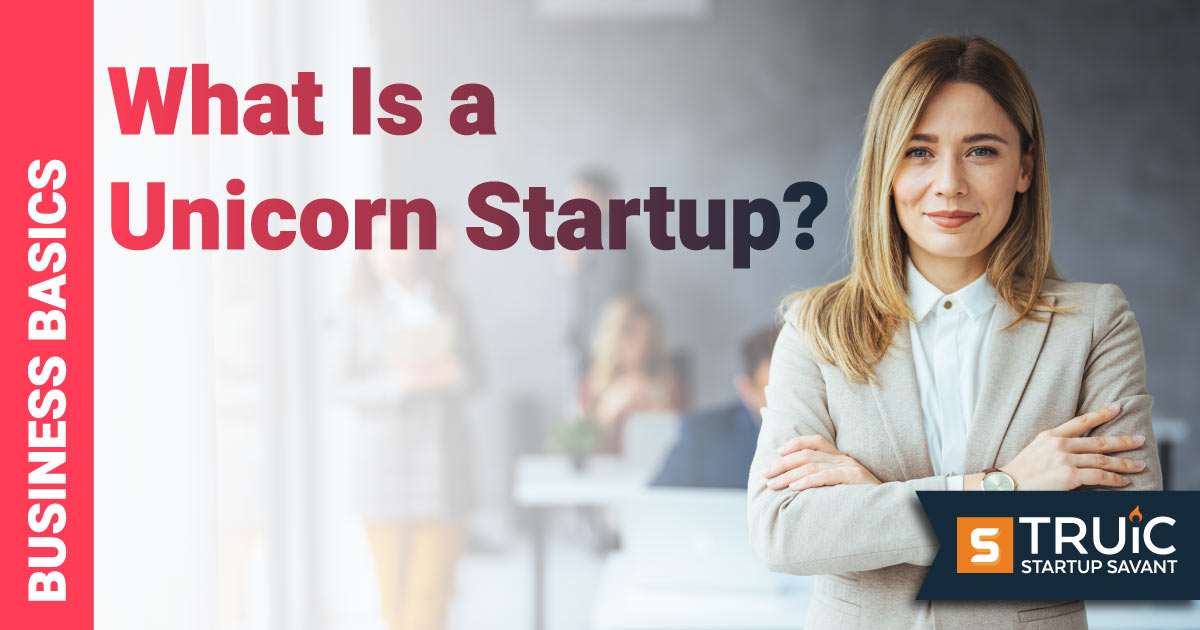What Is a Unicorn Startup?

Last Updated: By Michaela Dale
Once seemingly as rare as a unicorn itself, today, achieving the title “unicorn startup” isn’t as challenging as it used to be — but it still isn’t easy. In fact, unicorn companies must be a private company with a valuation over $1 billion, still a feat for many startup founders.
Achieving this level of success in the startup world requires a great product, a strong team, and rapid growth. Ready to get started reaching your startup’s growth potential? Keep reading for everything you need to know about unicorn startups and how to become one.
Recommended: Learn more about startups by reading our What Is a Startup? article.
Unicorn Startups Overview
What Is a Unicorn Startup?
The term “unicorn startup” was created and popularized by Aileen Lee, founder of Cowboy Ventures, in an article titled "Welcome to the Unicorn Club: Learning from Billion-Dollar Startups.” Lee developed the term to describe the rarity of startups with a rapid amassed value — which seemed to be as rare as finding a mythical unicorn.
So, what is a unicorn startup exactly? The term Unicorn Startup refers to privately-held startups with a total market value over $1 billion. Initially, “unicorn startup” described the 39 startups at the time that were valued as much. While the definition of Unicorn Startups hasn’t changed, the amount of unicorn startups has grown since the term’s inception.
Startups that exceed $10 billion, however, are called super-unicorn startups, an ultra-rare breed of startup. At the time of Lee’s article, Google was the first super-unicorn startup, valued at $100 billion. While the number of unicorn startups has grown, super-unicorns remain a rarity, with only social media mogul Facebook exceeding the $10 billion threshold between 2000 and 2010.
It's important to note that startup valuation isn't the amount made by the company but the amount an investor stands to make from investing in the startup. A startup unicorn valuation is determined by comparing money invested, typically venture capital, and the growth of the company thus far with similar startup's success.
Characteristics of Unicorn Startups
There is no “one size fits all” approach to generating the level of success required to be classified as a unicorn startup. However, there are a few characteristics that unicorn startups have in common.
Disruptive and Innovative
In order to reach the heights of success that unicorn startups do, they need to challenge the status quo. Generally, a hallmark of startups is innovation, and the most successful startups disrupt an industry and change the way things are done.
Tech-Driven
In an increasingly tech-focused world, unicorn companies tend to be software companies or startups in the technology, information technology, or mobile technology spheres — or some combination of the three.
Want to launch a tech startup? Check out our list of the best tech startup ideas.
Consumer-Focused
A startup’s success is dependent on appealing to a large market of consumers. Unicorn startups don’t provide a product or service to a niche demographic — they work to appeal to the largest market possible. This also means there is a constant need for growth and adaptation in order to connect with an ever-changing market.
Privately-Held
Unicorn startups tend to be privately owned. The reason being, when a large company invests in the startup, the startup’s valuation grows.
Examples of Popular Unicorn Startups
Current Unicorns
- ByteDance: A Chinese company reportedly valued at over $100 billion, Bytedance is most commonly known for its social media app TikTok as well as content platform Toutiao.
- SpaceX: The goal of unicorn startup SpaceX is ambitious, to say the least. This startup — valued at $46 billion — wants to make space travel more affordable as well as colonize Mars, which they have made tremendous strides toward.
- Airbnb: Airbnb is a platform that allows users to advertise their home for short-term stays. A company with a valuation of roughly $75 billion and a profitable business model, Airbnb stands out as a stable, sustainable startup.
Former Unicorns
A unicorn startup is considered a “former unicorn” when they are no longer privately-held, either by initial public offerings (IPOs) or acquisitions.
- Uber: Founded in 2009, the popular ride-sharing app achieved unicorn status just four years later. Today, Uber is a public company valued at $75.5 billion, and the founders are worth over $6 billion.
- Facebook: One of the only examples of super-unicorns of the 2000-2010 decade, social media platform Facebook amasses a value of over $100 billion.
- Alibaba: Alibaba is a startup out of China that is a worldwide leader in ecommerce and market capitalization. It is valued at $82 billion.
Recommended: Check out our list of the top unicorn startups to watch.
How to Start a Unicorn Startup
Now that you know what a unicorn startup is, you’re probably wondering how to start one of your own. While there is no simple recipe for creating a startup of this caliber, there are a few things that unicorn startups have in common.
Solve a Problem for Your Customers
One important attribute of a mega-successful startup is solving a widespread problem for your customers. Providing a solution for a problem equips your startup with a customer base starting out. After all, it’s difficult to create a prosperous company if there isn’t a market for your product.
Build a Strong Team
Launching a unicorn startup isn’t a one-person job. A strong team is essential to managing the rapid growth of this type of startup and maintaining your company’s forward trajectory. Furthermore, investors are more likely to invest in a startup with a strong, capable team that projects the level of success the company is ready to take on.
Aim for Rapid Growth
Unicorn startups are revenue-focused in nature, with rapid growth at the forefront of their minds when developing products and making vital business decisions. Investors pay attention to this mindset to give them an idea of how quickly they will see the fruits of their investment — a high return of investment (ROI). Start by assessing your startup idea’s potential for growth and areas that can be improved for rapid growth.
Stay Motivated and Focused
Momentum is essential to the success of a startup, and you are responsible for staying motivated and focused enough to keep your company pushing forward. Entrepreneurship isn’t easy. Expect many setbacks before your big pay off, and prepare yourself by maintaining your dedication to making your startup a success.
Unicorn Startup FAQ
What does unicorn startup mean?
Coined by Cowboy Ventures founder Aileen Lee, the term Unicorn Startup refers to privately held startups with a total market value over $1 billion.
What makes a startup a unicorn?
The defining characteristic of a unicorn startup is a market value over $1 billion. In addition, these companies are typically tech-driven, consumer-focused, privately held, and disruptors of the status quo.
How many startup unicorns are there?
According to Statistica, there are over 600 unicorn startups around the world.
How do you start a unicorn startup?
Launching a startup as wildly successful as a unicorn startup begins with a great product that solves a widespread problem for the audience.
What percent of startups become unicorns?
While the amount of startups that become unicorns has grown tremendously since the phrase was coined, the percentage of startups that achieve this level of success is still less than 1%.


